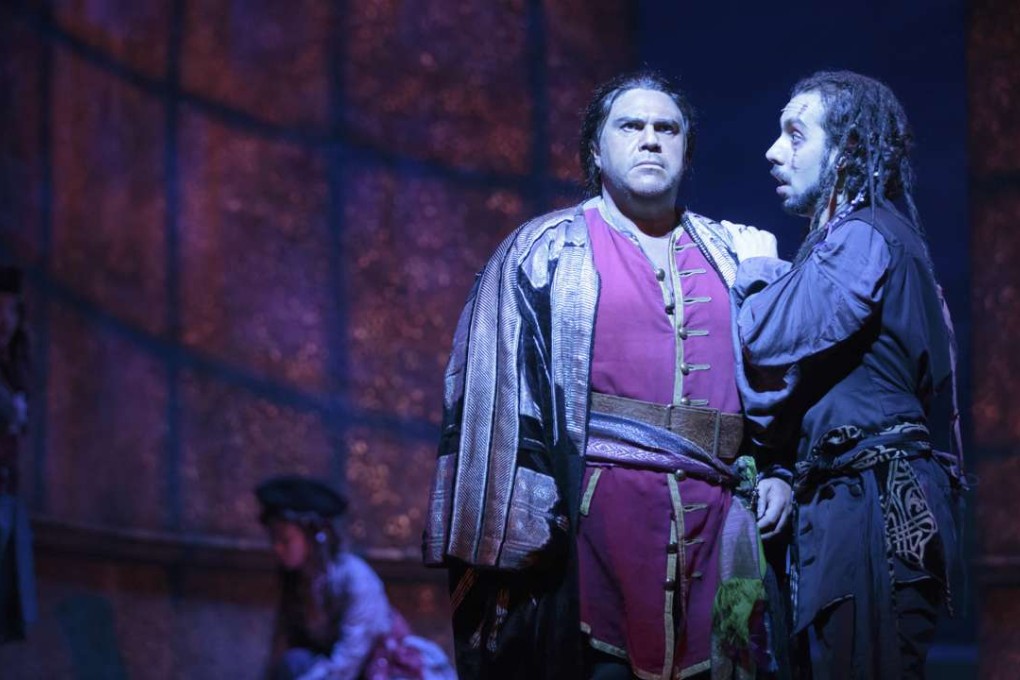Arts review: Verdi’s Otello – the parts are greater than the whole
Hong Kong Opera’s production of the classic featured a pure storyline and crystalline singing, although the performers were not well matched

Perhaps the only thing that was able to haul an ageing Giuseppe Verdi out of retirement (besides a greedy publisher) was his long time love for Shakespeare – an author he knew only in translation, and who had very few Italian readers. The composer’s final works, Otello and Falstaff, channelled the full range of his beloved playwright’s tragic and comedic prowess into a much different life on the opera stage.
Otello loses more from Shakespeare’s Othello than just the extra “h”, with Arrigo Boito’s libretto greatly compressing the play’s language and emotional complexity.
Off the battlefield, the Moorish general is gullible to the point of disbelief. Iago, who fully rationalises his disloyalty in Shakespeare’s original, becomes mere evil incarnate. And yet, Verdi’s score conveys a level of emotional intensity that words alone could never attain. The opera opens on board a ship rocking amidst a storm and keeps building from there.

Rather than spinning contemporary ruminations of sexual jealousy or racial hatred, he plays it straight, trusting those strains to resonate from the traditional story. (Set designer Andrea Miglio’s tilted crucifix subtly conveyed the tensions between the Islamic Otello and his Venetian environs.)
On opening night on Thursday, tenor Carlo Ventre’s Otello made his first entrance with clarion clarity. Soprano Zhang Liping’s Desdemona maintained a crystalline purity from the start. Baritone Matias Toso’s Iago frequently lit up the stage, revelling in nastiness nearly to the point of being camp (put him in red tights and Tosi could easily have been playing Mephistopheles).